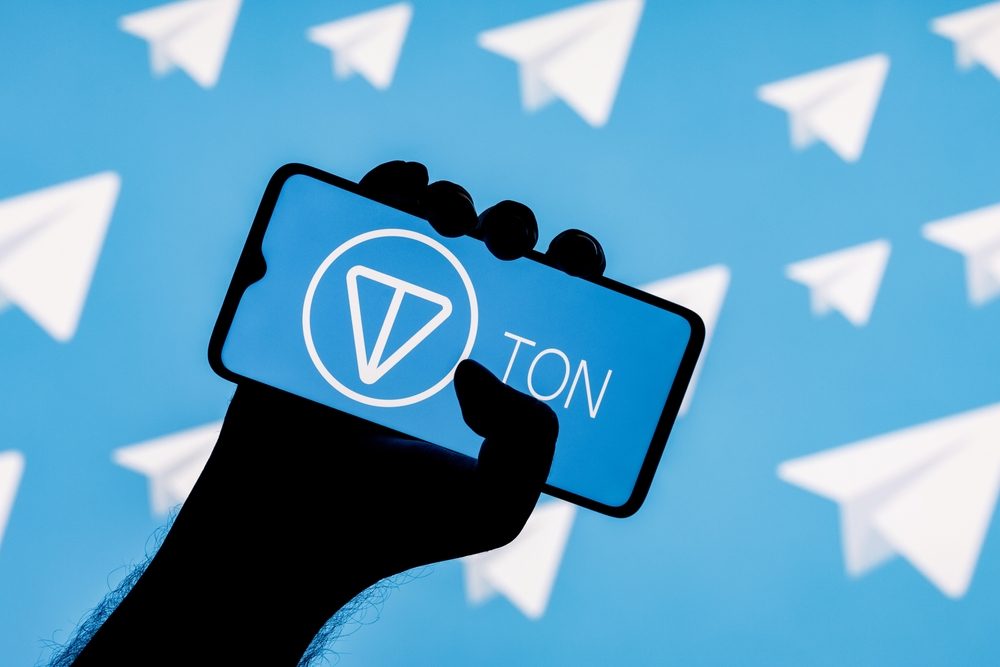Telegram revealed bans on other blockchain integrations as part of an exclusive deal with The Open Network (TON) for crypto apps and games.
Telegram, led by Pavel Durov, relaunched the official alliance with TON as the two companies revealed an exclusivity agreement on January 22. The messaging platform requires all mini apps with crypto integrations to use TON. The platform will offer various benefits to initiatives using the network.
Manuel Stotz, director of the Ton Foundation, welcomed the exclusive blockchain integration with Telegram. The executive presented the integration as a strategic step that will ultimately strengthen and elevate TON’s status as one of the world’s leading blockchains.
Stotz observed that Telegram is among the world’s leading messaging apps, with its network hosting more than 950 million active users. He added that the deal represents an unprecedented opportunity for TON at the heart of blockchain innovation.
Telegram was the initial creator of TON, then identified as Telegram Open Network. He would abandon the initiative in 2020, under the pretext of regulatory oversight. This allowed a community of builders to develop the TON, launching it externally as The Open Network.
Telegram announces exclusive agreement with TON
Telegram and TON have been closely linked since mid-2023. The messaging platform unveiled the TON Wallet app, an initiative that has fueled the latest wave of Tap-to-Earn gaming. Crypto games including Notcoin and Hamster Kombat have attracted hundreds of millions of players.
Additionally, Telegram is behind the channel operators, earning a portion of advertising revenue settled through Toncoin (TON). The initiative includes a Telegram Stars currency, although for in-app use it is exchangeable for TON. Additionally, Telegram hinted earlier this month that it would allow users to create in-app stickers that are NFTs tradable on TON.
The latest agreement on exclusive use leaves Telegram and TON aligned and joint. This requires Telegram mini-apps and games previously using the SUI and Aptos networks to migrate to the TON blockchain. Additionally, the migration will extend to the TON Connect protocol to allow these to retain their cryptography functionality.
Stotz clarified that he would ban existing wallet protocols provided for non-TON chains. However, its existence will only allow users to link assets from rival blockchains. Mini-apps with cryptographic capabilities will exercise such exclusive use on the TON blockchain to ensure scalability and security of user experiences.
The TON Foundation confirmed that it will provide grants to migrated projects within the 30-day period. It plans to offer grants capped at $50,000, but based on audience size. However, the recent commitment deems previous recipients ineligible for this grant.
Is the TON-Telegram marriage appropriate?
The Telegram and Ton team’s revelation came a day after President Donald Trump’s inauguration. His return to the Oval Office follows the Republican politician’s pro-crypto campaign, promising a regulatory overhaul to support the digital assets sector.
A notable development in crypto regulation is the departure of SEC Chairman Gary Gensler, who is seen as an antagonist and targeting the industry. Meanwhile, pro-crypto commissioner Mark Uyeda took over from Gensler on an interim basis. This will ensure a smooth transition to Paul Atkins, whom Trump nominated for the role.
Although Stotz avoided alluding to political developments, he indicated that parties often establish long alignments. He sees Telegram’s statement as a natural but strategic alignment. He is considered very knowledgeable, given his years-long advocacy of open source technology. Additionally, the messaging app champions an enhanced global Web3 community.
Stotz assured that TON shares this goal, as it is well positioned to support the realization of this vision. He adds that selecting TON for exclusive use of the blockchain will enable Telegram to provide robust, scalable and reliable solutions to developers and users.
Editorial credit: Sergei Elagin / Shutterstock.com




